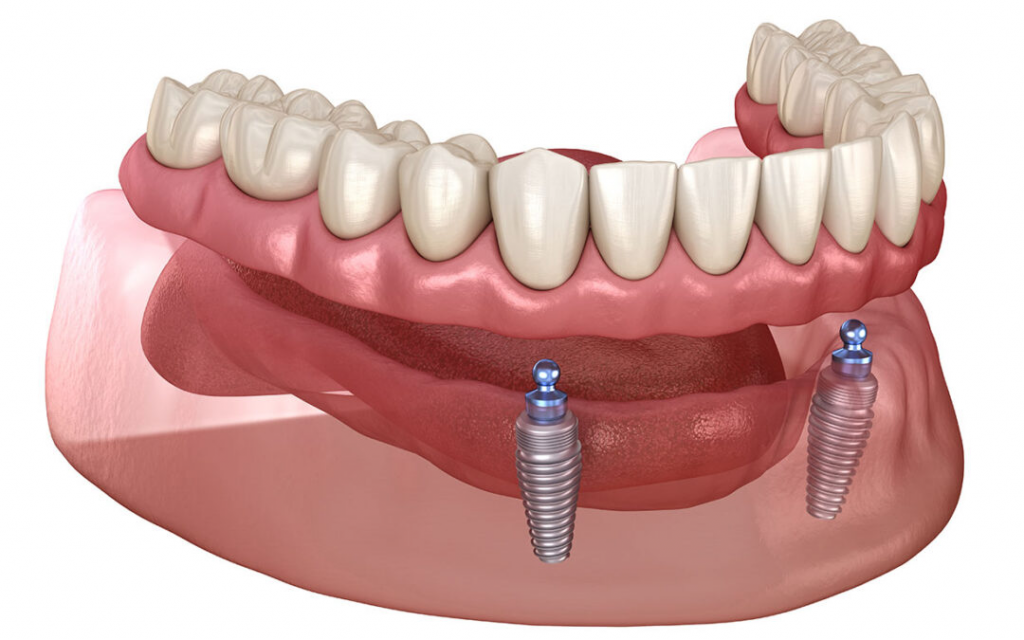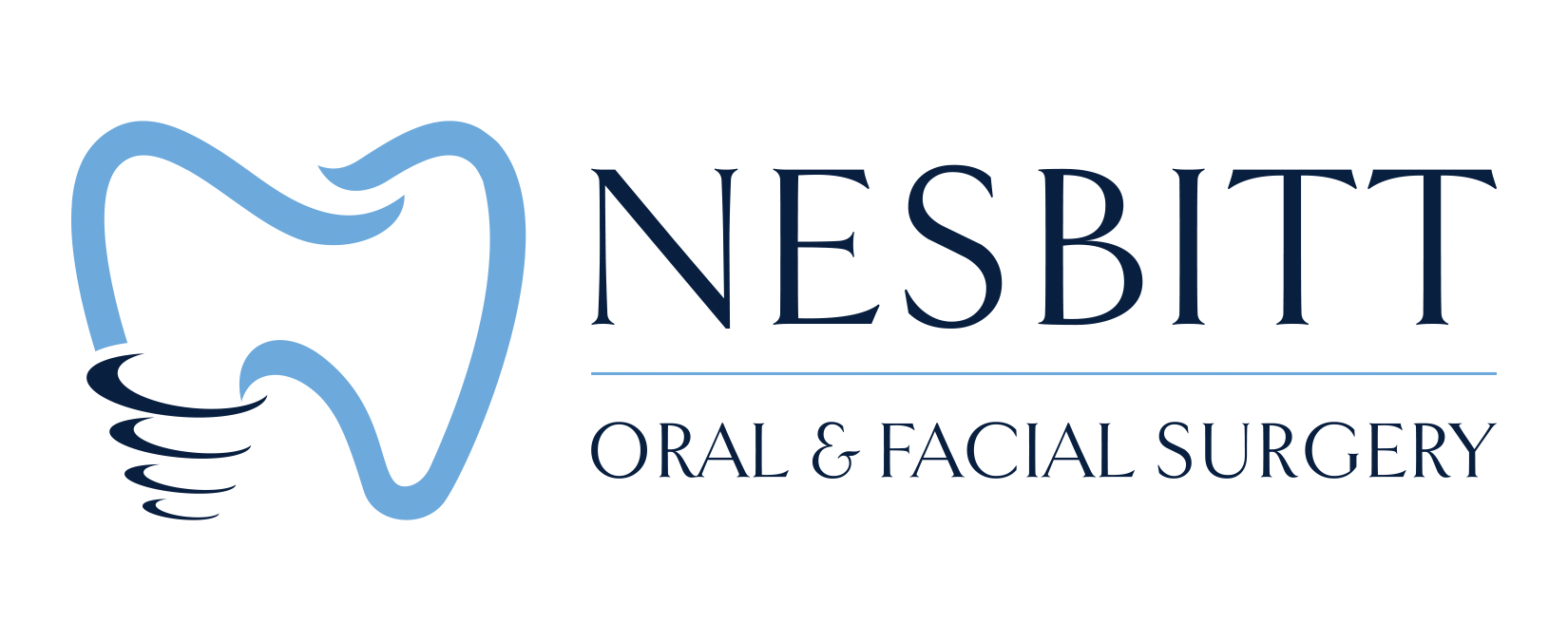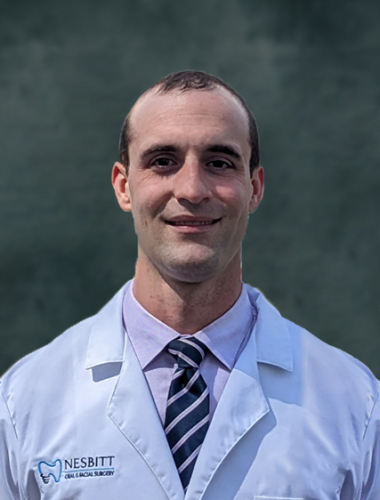
Why Do You Need a Dental Implant?
When you lose a tooth, whether it be from trauma, infection, cavities, or bone loss, it is best to replace it. Replacing a missing tooth will help maintain your bite and ability to chew food, prevent movement of other teeth, and maintain your appearance (in the event of loss of a front tooth). There are many options to replace missing teeth, including complete dentures, fixed bridges, partial dentures, temporary partial dentures (“flipper”), or dental implants. A dental implant will provide a replacement option that functions most like a natural tooth, is fixed (not removable) within the mouth, and avoids procedures on adjacent teeth that other options require.
What Are Dental implants?
Dental implants are designed to provide a foundation for replacement teeth that look, feel, and function like natural teeth. A single implant is used to replace a single missing tooth. Dental implants are titanium posts that are surgically placed into the jawbone where teeth are missing. These posts serve as tooth root substitutes. The bone bonds with the titanium, a process called osseointegration, creating a strong foundation for artificial teeth. Small posts called abutments that protrude through the gums are then attached to the implant. These posts provide stable anchors for artificial replacement teeth.
Your surgeon will perform extraction of the necessary teeth, bone grafting if needed, and placement of the implant. After a minimum of 10-12 weeks, the implant will be checked to ensure proper healing within the bone. Then, the dentist will make the crown (replacement tooth) and abutment to complete the process. In some cases, the implant can even be placed at the time of extraction.
Full Mouth Restoration With Dental Implants
In certain cases, dental implants can be placed to replace all missing teeth in your mouth. In this case, it is not necessary to replace every tooth with a dental implant. Instead, a few implants are strategically placed within the jaw bones and splinted together, and a full set of replacement teeth is connected to the implants. This procedure was traditionally called “all on four” because only 4 implants were placed. We now will place more than 4 implants for added stability.
This procedure is generally performed under general anesthesia and can often be done at the same time as the extraction of your remaining teeth. Your oral surgeon will work closely with your dentist or prosthodontist for the best result. Your surgeon will perform the extraction of teeth, recontouring of bone, and placement of implants. Then, your dentist will fit the replacement teeth onto the implants, often on the same day. This treatment option is an alternative to a denture and functions more like your natural teeth as the replacement teeth are “fixed” or screwed onto the implants.
Visit AAOMS (myoms.org) for more information.

Additionally, implants can be placed within the jaw to help retain or support your existing denture or a new denture. The implants have small “caps” that are attached to them, called locator abutments, that “click” onto the denture to help reduce the mobility of your denture when chewing and speaking.

Treatment Timeline for Dental Implants
Consultation Visit
If you are interested in dental implants to replace missing or failing teeth, your first step will be to schedule a consultation. This is where Dr. Nesbitt will do a thorough review of your medical history as well as perform a comprehensive exam. This will allow Dr. Nesbitt to ensure there are no underlying medical conditions that may impact your implant survival or method of anesthesia used. The exam will also allow you to discuss your treatment desires and expectations with Dr. Nesbitt.
During the exam, Dr. Nesbitt will evaluate the amount of space between adjacent and opposing teeth, the quantity and quality of bone, and the overall health of your other teeth and gum tissue. All of this information is gathered using both a clinical exam and 2-dimensional and possibly 3-dimensional radiographs. This will allow Dr. Nesbitt to ensure you have enough space within your jaw for dental implants and the tooth crown, which is attached to the implant. It will allow Dr. Nesbitt to determine if you require additional procedures before dental implant surgery to help restore the bone and gum tissue foundation to allow for the proper placement of your dental implant.
At your consultation exam, Dr. Nesbitt will discuss all of your implant treatment options to obtain the outcome you desire. He will then discuss what the surgery entails, anesthesia options offered, post-operative care and expectations, as well as risks of surgery. You are encouraged to ask any questions about your treatment. Once a plan is finalized, you will be scheduled for your implant placement surgery.
Surgery Appointment and Healing / Recovery
Dental implant placement is a surgical procedure that usually takes 45 minutes to 1 hour for a single implant and 1-3 hours for multiple implants (depending on the number of implants). For full mouth rehabilitation with implants, you can expect the procedure to take 4-5 hours. This includes time for extractions, recontouring jaw bone, placing implants, and having your dentist place the replacement teeth onto the implants. Antibiotics are usually prescribed prior to implant surgery to ensure a clean environment during implant surgery.
Surgery may be performed under local anesthesia (numbing injections) or IV sedation/general anesthesia (asleep). This is something Dr. Nesbitt will discuss during your consultation visit and also depends on your current health and medical conditions.
During the surgery, a small incision is made in the gum tissue. This will reveal the underlying bone. Next, a series of special instruments are used to create a “socket” shaped for the specific size implant to be placed. Last, the titanium implant is inserted into the bone, and the gum tissue is sutured closed. The implant is allowed to heal for a minimum of 3-4 months.
After implant surgery, you will be scheduled for follow-up appointments to monitor healing. After the allotted time, the implant will be uncovered and checked to ensure it has fused with the bone. If not placed on the implant at the time of implant placement, a healing abutment or small metal cap will be attached to the implant. This allows the gum tissue to heal around the implant in a way that will enable the final tooth to attach to the implant and appear to be naturally emerging from the gum tissue. The final tooth (crown) is placed on the implant by your dentist or prosthodontist after Dr. Nesbitt verifies the implant has fully healed.
How Do I Take Care of My Implant?
After surgery, you should avoid chewing on the area or placing pressure on the site (with temporary replacement teeth, etc.) while the implant is healing. The sutures will dissolve on their own but can be removed 1-2 weeks after surgery if needed. There is usually only mild pain after implant placement which can be controlled with medications such as Ibuprofen or Tylenol. You may be prescribed stronger pain medications if indicated.
Once the implant is fully healed and your dentist places the tooth on the implant, you should care for it as you would natural teeth. Brushing and flossing around implants is important to prevent bone loss and gum disease around the implants. You should also maintain dental checkups and cleaning appointments.

